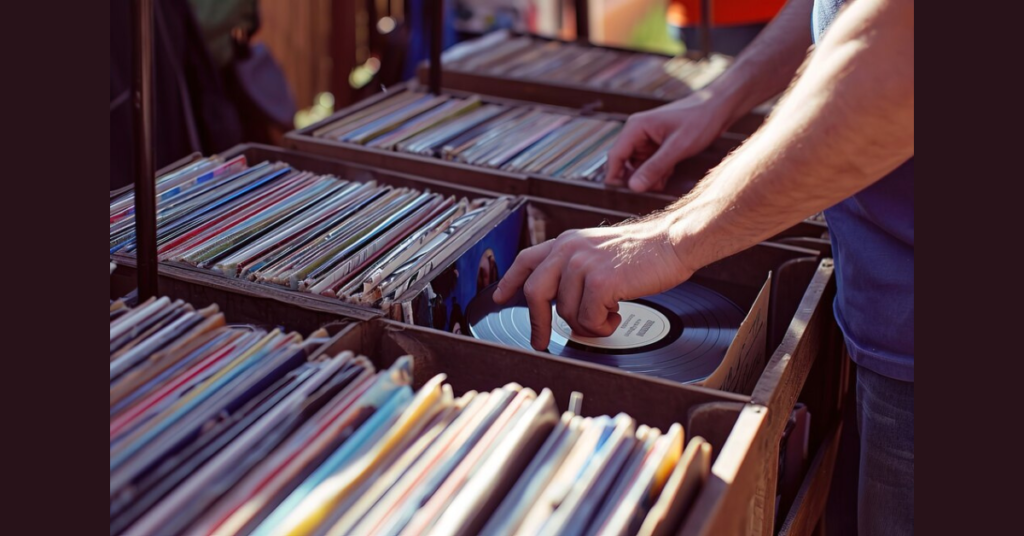The resurgence of vinyl records in recent years has captivated collectors and music enthusiasts alike, driven by a renewed appreciation for the tactile experience and rich sound quality that vinyl offers. Whether you have inherited a collection, discovered a hidden treasure at a garage sale, or are a seasoned vinyl collector, understanding the value of your records is essential. This is where vinyl record appraisals come into play.
In this comprehensive guide, we will delve into the intricacies of vinyl record appraisals, exploring their significance, the appraisal process, and the various factors influencing the value of vinyl records. By the end, you’ll be equipped with a thorough understanding of how to obtain an accurate appraisal for your vinyl collection and appreciate the factors that contribute to their worth.
The Importance of Vinyl Record Appraisals
Vinyl record appraisals are crucial for several reasons:
- Insurance Purposes: Accurate appraisals are necessary for insuring valuable vinyl collections. In the event of loss, theft, or damage, an appraisal provides documentation of the collection’s value, ensuring that you are adequately compensated.
- Estate Planning and Inheritance: When inheriting or planning an estate, knowing the value of a vinyl collection helps in making informed decisions about its disposition, whether it involves selling, donating, or dividing among heirs.
- Selling or Trading: If you plan to sell or trade your vinyl records, an appraisal provides an objective assessment of their value, helping you set realistic prices and negotiate effectively.
- Personal Knowledge: For collectors, understanding the value of their records enhances their appreciation and enjoyment of their collection. It also helps in making informed decisions about acquisitions and deaccessions.
How Vinyl Record Appraisals are Conducted
Vinyl record appraisals involve a detailed process to assess the value of a collection. Here’s a step-by-step overview of how appraisals are typically conducted:
1. Initial Consultation
The appraisal process begins with an initial consultation between the appraiser and the record owner. During this consultation, the appraiser gathers information about the collection, including its size, condition, and any notable records. This helps the appraiser understand the scope of the appraisal and identify any specific concerns or requirements.
2. Examination of Records
The appraiser conducts a thorough examination of each record in the collection. This involves assessing the physical condition of the vinyl records, including the condition of the grooves, labels, and covers. The appraiser may also evaluate the pressing information, which can provide clues about the record’s rarity and value.
3. Research and Verification
Once the records are examined, the appraiser conducts research to verify their authenticity and determine their market value. This includes checking various sources such as price guides, auction results, and online marketplaces to identify recent sales and market trends. The appraiser also considers factors such as the record’s rarity, demand, and historical significance.
4. Value Assessment
Based on the examination and research, the appraiser assesses the value of each record. This involves determining the fair market value, which is the price a willing buyer would pay and a willing seller would accept in an open market. The appraiser may also provide a range of values to account for variations in condition and market fluctuations.
5. Appraisal Report
The final step in the appraisal process is the creation of a detailed appraisal report. This report includes a comprehensive description of each record, its condition, and its estimated value. The report may also include photographs, documentation of the appraisal process, and any relevant research findings. The appraisal report serves as an official document for insurance, estate planning, or selling purposes.
Factors Influencing the Value of Vinyl Records
Several factors influence the value of vinyl records. Understanding these factors can help you better appreciate the worth of your collection and make informed decisions. Here are some key factors that affect vinyl record value:
1. Condition
Condition is one of the most critical factors in determining the value of a vinyl record. Records are graded on a scale that typically includes the following categories:
- Mint (M): The record is in perfect condition, with no visible defects or signs of wear.
- Near Mint (NM): The record shows no obvious signs of wear and is almost in perfect condition.
- Very Good Plus (VG+): The record may have minor imperfections but is still in excellent condition.
- Very Good (VG): The record shows signs of wear but is still playable and in decent condition.
- Good (G): The record has significant wear and visible damage but is still playable.
- Poor (P): The record is heavily damaged and may be unplayable.
The condition of the record cover, label, and any included inserts also play a role in determining value. Records in mint or near-mint condition are generally worth more than those with visible wear and damage.
2. Rarity
Rarity is a significant factor in the value of vinyl records. Records that were released in limited editions, have unique features, or were produced in small quantities are often more valuable. Rarity can also be influenced by factors such as the artist, record label, and pressing information.
3. Demand
The demand for a particular record can greatly affect its value. Records by popular artists or those associated with significant cultural or historical events are often in higher demand. Market trends and collector interest can also impact demand and, consequently, value.
4. Pressing Information
The pressing information of a record can provide valuable insights into its rarity and value. Factors such as the pressing plant, matrix numbers, and label variations can affect the record’s desirability. For example, first pressings or records with unique label variations may be more valuable.
5. Artist and Album Significance
The artist and album significance can influence a record’s value. Records by iconic artists or those associated with influential albums are often more sought after by collectors. The historical impact of the album and its place in music history can contribute to its value.
6. Market Trends
Market trends play a role in determining the value of vinyl records. Prices can fluctuate based on changes in collector interest, economic conditions, and shifts in the music industry. Staying informed about current market trends and recent sales can provide insights into the value of your records.
Tips for Obtaining an Accurate Vinyl Record Appraisal
To ensure that you obtain an accurate appraisal for your vinyl collection, consider the following tips:
- Choose a Qualified Appraiser: Look for a professional appraiser with experience in vinyl records and a good understanding of the market. A qualified appraiser will have the expertise to provide a thorough and accurate evaluation.
- Provide Detailed Information: When preparing for an appraisal, provide detailed information about your collection, including any relevant documentation or provenance. This can help the appraiser understand the context and significance of your records.
- Maintain Records in Good Condition: Properly store and handle your records to preserve their condition. Use protective sleeves, keep them away from direct sunlight, and avoid exposing them to extreme temperatures or humidity.
- Stay Informed: Stay informed about market trends and recent sales to better understand the value of your records. Researching current prices and trends can provide valuable insights and help you make informed decisions.
- Seek Multiple Opinions: If you’re unsure about the value of your collection, consider seeking opinions from multiple appraisers. This can provide a broader perspective on your records’ value and help you make more informed decisions.
Conclusion
Vinyl record appraisals play a crucial role in understanding the value of your collection, whether for insurance, estate planning, selling, or personal knowledge. By following the appraisal process, considering the factors influencing value, and obtaining an accurate appraisal, you can ensure that you have a comprehensive understanding of your vinyl records’ worth.
As the vinyl resurgence continues, the value of records may fluctuate based on market trends, rarity, and demand. Staying informed and working with qualified appraisers will help you navigate the world of vinyl record appraisals and make the most of your collection.
With a thorough understanding of vinyl record appraisals, you can confidently manage your collection and appreciate the unique value of each record. Whether you’re a collector, inheritor, or casual enthusiast, knowing the value of your vinyl records enhances your appreciation and enjoyment of this enduring medium.
This article provides an extensive overview of vinyl record appraisals, including their importance, the appraisal process, and factors influencing value. If you have specific aspects you’d like to explore further or need additional information, feel free to let me know!







